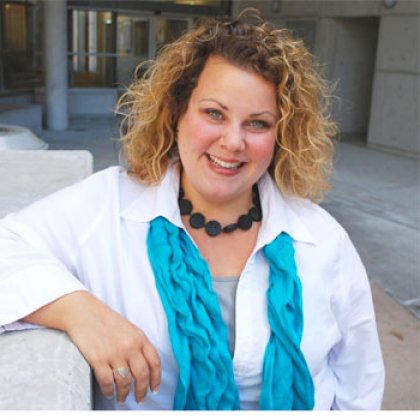
The Transformation of Solidarity, a book co-edited by University of Queensland sociologist Dr Mara Yerkes, tackles the subject of globalisation of national economies and societies where we put a high value on individual rights and self-expression.
In her Dutch case study, Dr Yerkes finds that people are prepared to help others but prefer welfare policies that have more "strings" of individual accountability attached.
"Does this mean we no longer care for the collective good and aren't prepared to help people out and what does that mean for welfare policies?" Dr Yerkes asks in her book.
The Transformation of Solidarity, jointly edited by Professor Romke van der Veen, Dr Mara Yerkes and Dr Peter Achterberg shows that globalisation and individualisation do not shake the foundation of social solidarity, or the desire for collective caring of others.
According to the authors, solidarity refers to citizens' willingness to share risks -it's what binds social groups together: the rich and the poor, the old and the young, the sick and the healthy, the employed and the unemployed.
"Solidarity still exists in the Netherlands but people value a different kind of solidarity, one that requires a greater degree of reciprocity - that is, people don't just have a right to government help, they are obliged to do something in return," Dr Yerkes said.
Dr Yerkes says solidarity is crucial to help alleviate poverty and reduce social inequalities in society.
"If solidarity is absent, support for social policies erodes, which can lead to increasing inequality and poverty," she said.
"The Dutch case is important because it demonstrates that while individualisation and economic globalisation are taking place, this does not lead to an erosion of solidarity - not among citizens and not among businesses or the government.
Dutch citizens support social programs and policies, but in a different way. Individual responsibility and participation are emphasized rather than passive income support," Dr Yerkes said.
Herein lies a lesson for other countries.
"Although restrictions on welfare spending have taken place in the Netherlands, they have the aim to reducing welfare dependency, not just an aim of preventing welfare take-up," she said.
More importantly, these measures have gone hand-in-hand with various social investments from the government, businesses and unions, which helps strengthen the social foundation for these policies.
Dr Mara Yerkes is a Senior Research Fellow at the University's Institute for Social Science Research and did her Postdoctoral Research Fellow in Sociology at the Erasmus University in the Netherlands. This book adds to Yerkes' previous work on the Dutch welfare state.
"While my previous book (Transforming the Dutch Welfare State) focused on which risks governments look to protect and why, this edited volume examines the underlying sense of solidarity behind the protection of social risks. It offers an investigation of this issue at the level of individuals, businesses, unions and the national level," Dr Yerkes said.
Media: Honor Morton (07) 3346 7806 or honor.morton@uq.edu.au




